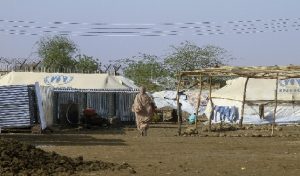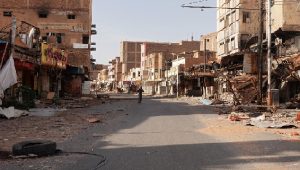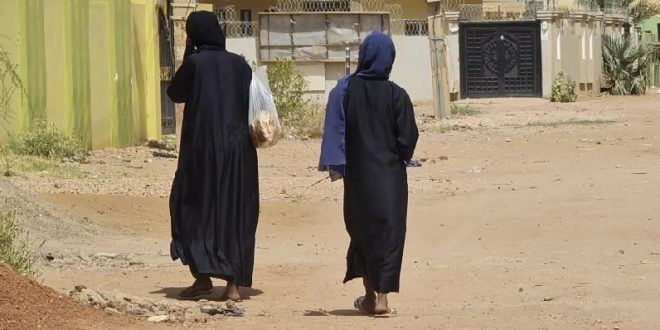31-07-2024
KHARTOUM/ CAIRO: Sudan’s paramilitary Rapid Support Forces have committed widespread acts of sexual violence in the capital Khartoum, including gang rape and forced marriages, in its war with the armed forces, Human Rights Watch said on Monday.
An HRW report said some attacks had also been attributed to the army, which the RSF has battled since April 2023.
 It cited accounts of the RSF holding women and girls in conditions that could amount to sexual slavery, and assaulting them in front of their families.
It cited accounts of the RSF holding women and girls in conditions that could amount to sexual slavery, and assaulting them in front of their families.
Media has asked the RSF and the army for comment. Both sides have previously denied responsibility for abuses during the war, with the RSF saying it would take preventative measures against human rights violations.
The HRW report quoted one woman living in an area controlled by the RSF as saying that for months she had slept with a knife under her pillow to defend herself, and a midwife saying that fear of RSF raids was constant.
“They do not raid for just looting, they target specific houses because the women are there, they enter and ask for the women and girls in the house,” the midwife said.
Many survivors who sought to terminate pregnancies resulting from rape faced barriers to doing so, the report said. Men and boys have also been sexually assaulted, it said.
The RSF has controlled most of Khartoum and its sister cities Bahri and Omdurman since the opening days of the war, which began as both sides jostled to protect their power under a planned political transition following the overthrow of long-ruling autocrat Omar al-Bashir in 2019.
The conflict has stirred up ethnically-motivated killings in the western region of Darfur, where the RSF and allied militias are accused of leading a campaign of attacks including sexual assaults against the Masalit ethnic group.
Hala al-Karib, head of the Strategic Initiative for Women in the Horn of Africa (SIHA), said in a press conference for the report’s launch that Masalit women as well as women from the Nuba Mountains had also been targeted around Khartoum and Omdurman.
 “Any small movement by a woman makes her a direct target. The female volunteers in the emergency response room have suffered detentions,” said Nidal Ahmed, an emergency response volunteer in Khartoum.
“Any small movement by a woman makes her a direct target. The female volunteers in the emergency response room have suffered detentions,” said Nidal Ahmed, an emergency response volunteer in Khartoum.
“They have been raped as service providers,” she told the press conference.
A colleague had been directly targeted and killed in late 2023, she added.
Reports of cases of sexual violence had risen after the army took control of Omdurman in early 2024, HRW said.
Survivors have identified six Arab paramilitary commanders and militia leaders who they say played a key role in directing the ethnically targeted violence in the Sudanese city of El Geneina that killed thousands and forced hundreds of thousands to flee the country.
The commanders and militia leaders directed their forces to shell densely populated displaced-persons camps and districts in the city with rockets and mortars, and were seen giving orders to their forces as the attacks unfolded, according to more than 20 people who survived the assault and are now living in refugee camps on Chad’s border with Sudan.
Much of the violence was directed at the ethnic African Masalit tribe, who comprised the majority in El Geneina until the attacks forced their mass exodus from the city. The violence, which began in late April and peaked in June, reignited in early November. (Int’l News Desk)
 Pressmediaofindia
Pressmediaofindia




